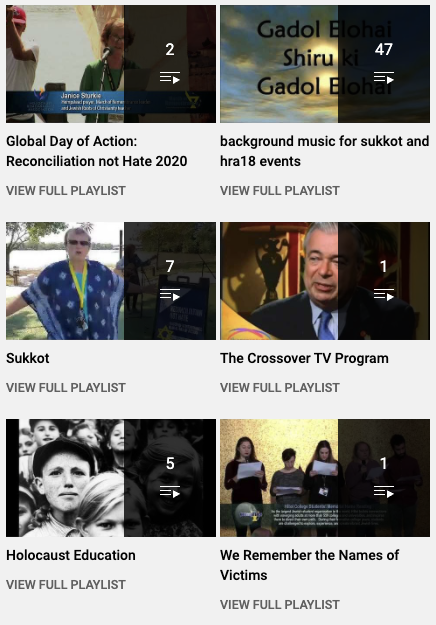September 25, 2025 – Dr. Susanna Kokkonen
Vayelech 5786 (2025)
Deuteronomy 31:1-30 (Haftarah: Hosea 14:2-10; Micah 7:18-20)
Vayelech, the name of this Torah portion means “he went (out).”
“Then Moses went out and spoke these words to all Israel…” (Deuteronomy 31:1 NIV)
The portion falls between Rosh Hashanah, the Hebrew calendar’s New Year and Yom Kippur, the Day of Atonement. Therefore this Sabbath also has a name Sabbath Shuva, Sabbath of Return. The word “return” relates to the prophetic portion where prophet Hosea tells the nation to return to God.
Encouragement
At the speaking of this portion’s text, Moses was 120-years. Before his impending death he gave the nation his final instructions. He especially gave them a word of encouragement.
“The LORD himself goes before you and will be with you; he will never leave you nor forsake you. Do not be afraid; do not be discouraged.” (Deuteronomy 31:8 NIV)
Joshua, who had been Moses’ assistant, was going to take them to the Promised Land. He needed encouragement.
| “The LORD said to Moses, “Now the day of your death is near. Call Joshua and present yourselves at the tent of meeting, where I will commission him.” So Moses and Joshua came and presented themselves at the tent of meeting.” (Deuteronomy 31: 14 NIV) |
In his speech Moses (as spoken to him by God) foresaw how the nation would go astray forgetting all these instructions. The torah itself would be a witness against them.
“Take this Book of the Law and place it beside the ark of the covenant of the LORD your God. There it will remain as a witness against you.” (Deuteronomy 31: 26 NIV)
Return and Forgiveness
Hosea, like so many other prophets, talks about how God will forgive Israel, as they regret their sins. The reason for their suffering has been their sin.
“Return, Israel, to the LORD your God. Your sins have been your downfall!
Take words with you and return to the LORD. Say to him: “Forgive all our sins and receive us graciously, that we may offer the fruit of our lips.” (Hosea 14: 1-2 NIV)
But God is forgiving, and He will not stay angry forever. The word says that His anger turns away and he will love them.
“I will heal their waywardness and love them freely, for my anger has turned away from them.” (Hosea 14:4 NIV)
Prophet Micah tries to compare God to someone but finds no one to compare Him to. God’s forgiveness and His delight in showing mercy are the very reasons for His greatness.
“Who is a God like you, who pardons sin and forgives the transgression of the remnant of his inheritance? You do not stay angry forever but delight to show mercy. You will again have compassion on us; you will tread our sins underfoot and hurl all our iniquities into the depths of the sea. You will be faithful to Jacob, and show love to Abraham, as you pledged on oath to our ancestors in days long ago.” (Micah 7:18-20 NIV)
God’s Faithfulness
In the New Testament sin and forgiveness are its most constant themes. Just like spoken by the prophets, the writers of the New Testament emphasized confessing sins and then receiving forgiveness.
“If we confess our sins, he is faithful and just and will forgive us our sins and purify us from all unrighteousness.” (1. John 1:9 NIV)

Photo by Robert Capa – “First Rosh Hashanah service to be held in any of the city’s synagogues since 1938, Fraenkelufer Synagogue, Berlin” – The Robert Capa and Cornell Capa Archive, Gift of Cornell and Edith Capa, 1992
Rosh Hashanah 1945
Life Magazine’s photographer famously documented a synagogue service in September 1945. This was the first Rosh Hashanah service since 1938 taking place in Berlin. The famed photographer Robert Capa was originally a Jew from Hungary.
A restored Torah Scroll had been found and was now used. In addition to Holocaust survivors American and Russian Jewish soldiers attended the service. Rabbis serving as chaplains in the US army had been helping as had other servicemen.
Services took place in other towns as well, but the one in Berlin was very symbolic. Nazis had not succeeded in making their capital Berlin judenrein, cleansed of Jews.
A new year following the Biblical calendar began in September 1945 without the Nazi Party instead.
As I wish everyone of our readers a Happy and Healthy Year, may we pray for more than ourselves.
May we pray for Israel’s peace and the promised hope for the future.
*For an explanation of the terms see the first The Torah Portion Blog.
And God said, “Let there be light,” and there was light.
Genesis 1:3 NIV
Your word is a lamp for my feet, a light on my path.
Psalm 119:105 NIV
Arise, shine, for your light has come, and the glory of the LORD rises upon you.
Isaiah 60:1 NIV
…let your light shine before others, that they may see your good deeds and glorify your Father in heaven.
Matthew 5:16 NIV
Torah Scrolls were attacked and desecrated during the Holocaust. The enduring images of the Kristallnacht (November 9-10,1938) are those of synagogues on fire and Torah Scrolls burning. Some of these desecrated Torah Scrolls disappeared, others were buried. Some were lovingly rescued and are on display in museums in various locations.


